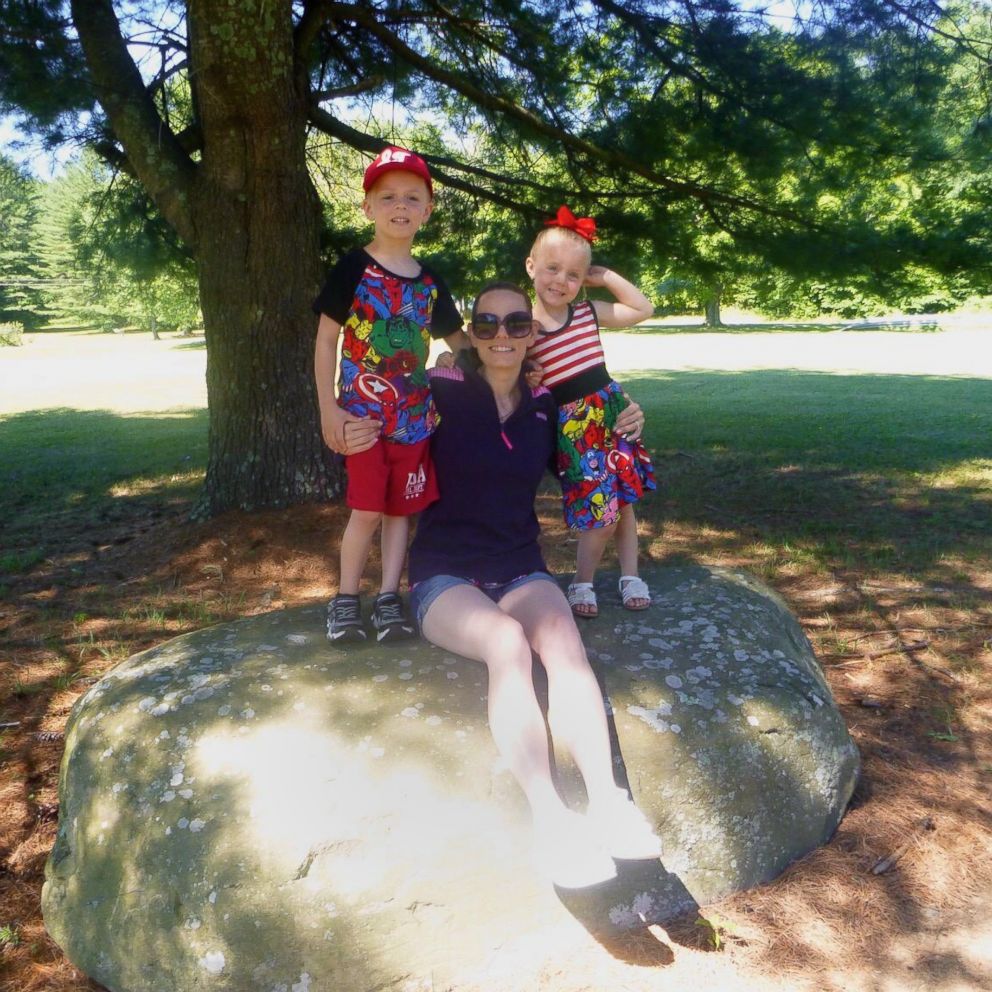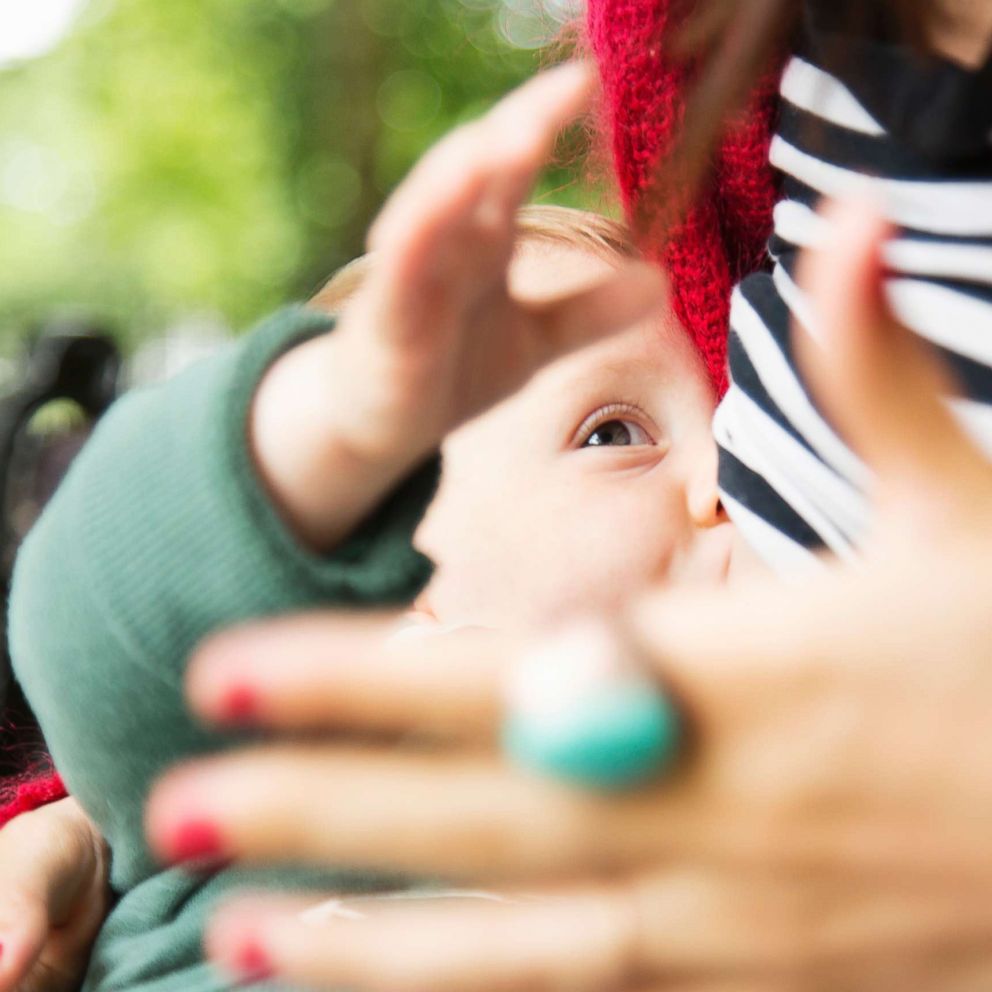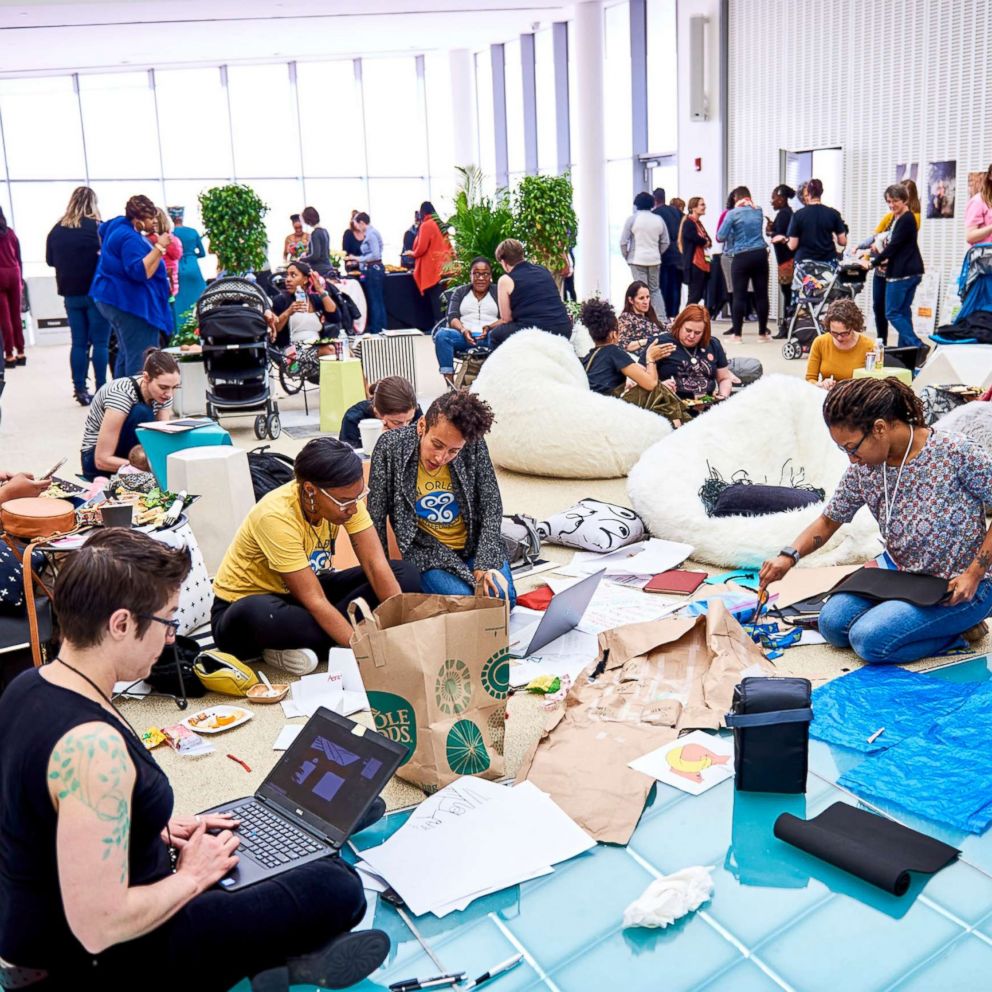This employee got Walmart to expand breastfeeding stations in stores across the country
A Walmart employee brought the idea to have freestanding pods in stores.
Nearly three years after a Walmart employee brought a proposal to the company to provide private spaces for moms to breastfeed in its stores, the retail chain is announcing plans to place breastfeeding pods in 100 more stores, with the hope of placing pods in nearly all of its U.S. stores in the coming years.
"At times I get a little emotional about the impact this is going to have on nursing mothers," said Tennille Webb, the Walmart employee who proposed the pods. "The scope of the impact that this can have for our associates and customers makes this a really exciting development."
Webb, the mom of a now nearly 3-year-old son, was recently back from maternity leave, still breastfeeding and traveling several times a month for work in late 2017 when she saw a freestanding lactation suite, or breastfeeding pod, inside an airport.
Webb used the pod, made by the Vermont-based company Mamava, to pump in between flights and then brought the idea to place Mamava pods in Walmart stores back to her colleagues and bosses in Bentonville, Arkansas.
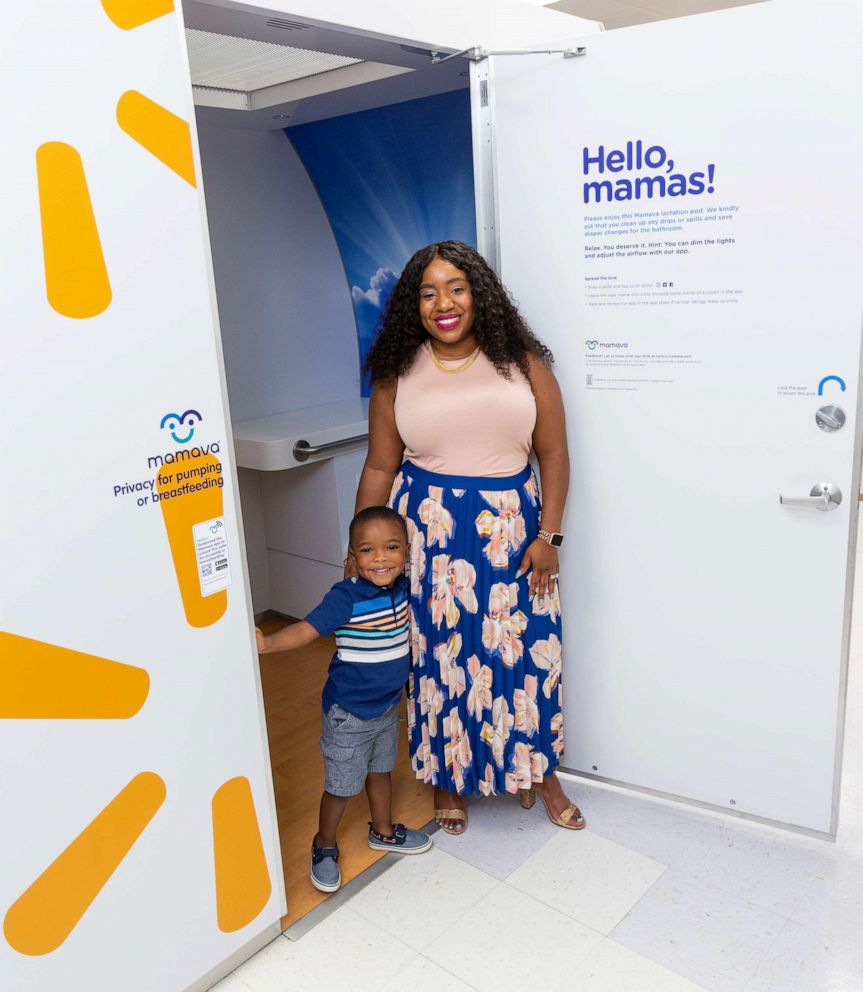
Walmart launched a pilot test with three Mamava pods in three stores last year and is now bringing the pods to more stores across the country. The company made the announcement on Tuesday, the start of Black Breastfeeding Week in the U.S., a week intended to raise awareness of being black and breastfeeding.
"It means a lot to me that I was able to speak up, that my idea was heard and the end result was the implementation of the program," said Webb. "I did not run across a single leader that did not understand, empathize and then once they heard about it, champion the idea."
Webb said the thought of her son kept her continue to push to see her idea become a reality.
"From the start, to keep myself going through the various conversations and approvals and questions, I thought back to what kind of example do I want to be for my child, for my son?" she said. "I want to show him to be bold, how to be brave, how to speak up when you see something."
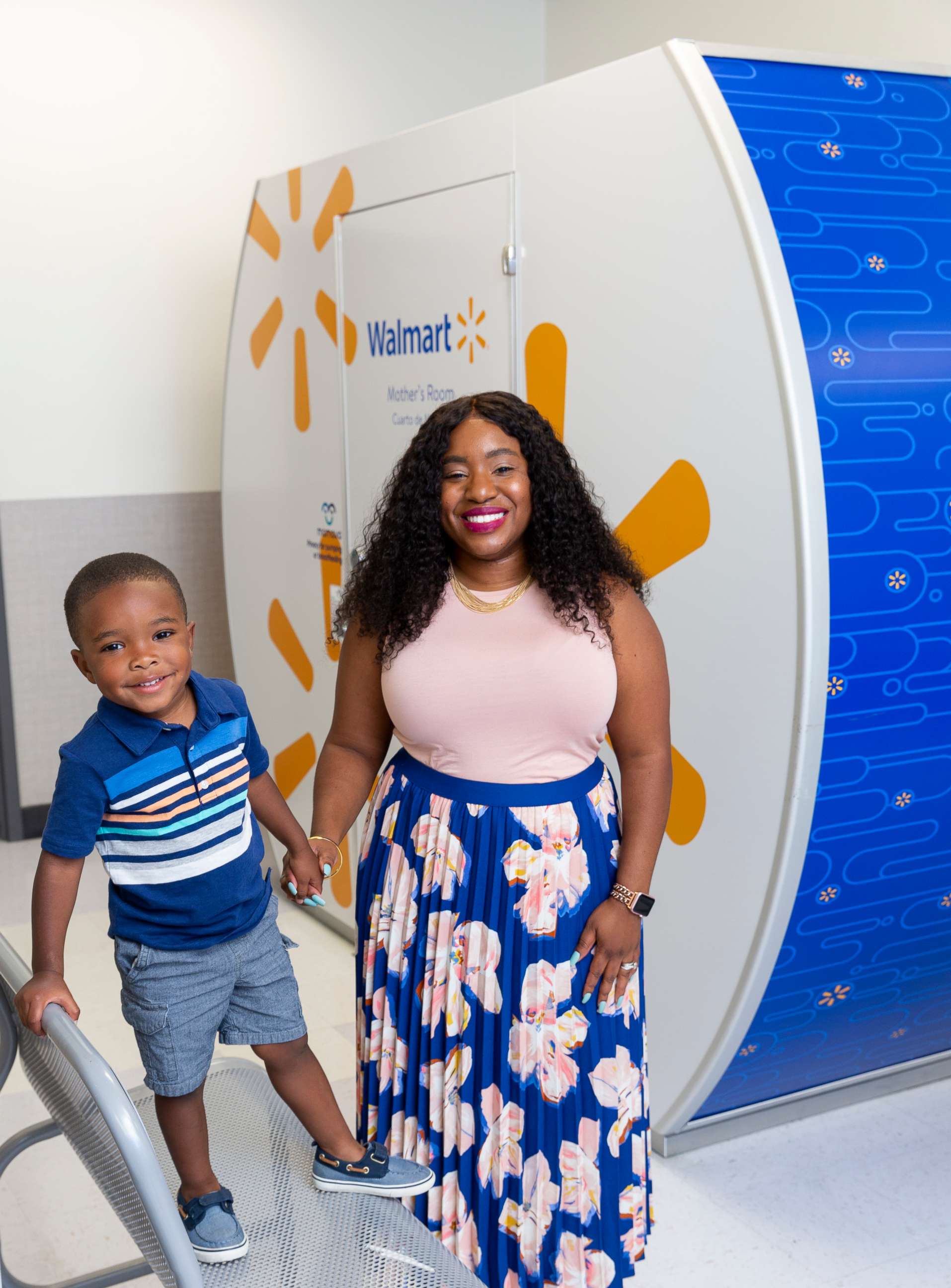
Walmart, which has 4,700 stores across the U.S., is the first retailer in the country to install Mamava pods in stores, according to both Walmart and Mamava.
The Mamava pods are available for both customers and Walmart associates to use at no charge.
Mamava describes its product as an "all-in-one turnkey lactation solution for offices and public spaces," according to its website.
Each pod contains amenities that breastfeeding moms need like plugs, seating space and air control. The pods can be opened via the Mamava app, which also lets users know the location of the pod nearest their location.
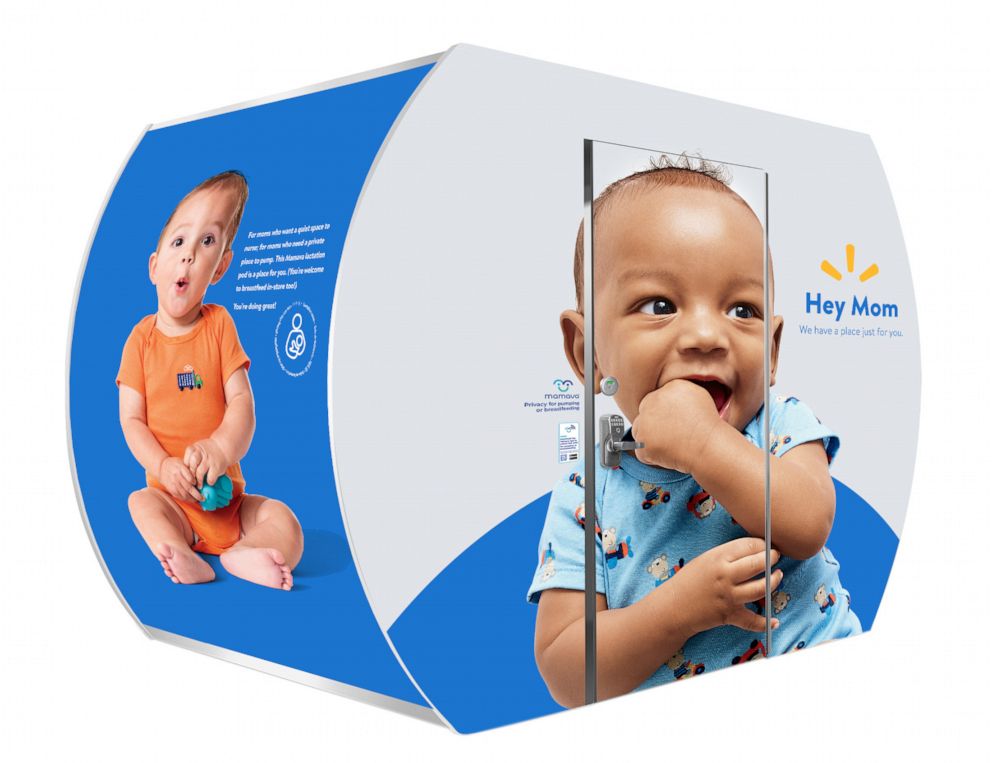
Moms can also control the air flow in the pod and dim the lights via the app.
Walmart received feedback from moms in the three pilot cities that they really appreciated that Walmart offered the pod and really liked the features and convenience of the pod. The company also saw repeat users of the pods, according to Anne Hatfield, Walmart's director of global communications.
"We’ve gotten such a great response so far," she said. "We have a culture at Walmart where we want to hear these ideas. We’re always looking for new ways to serve customers and new ways to support our associates."
By the end of August, Mamava will have delivered just over 100 pods to Walmart stores across the country.
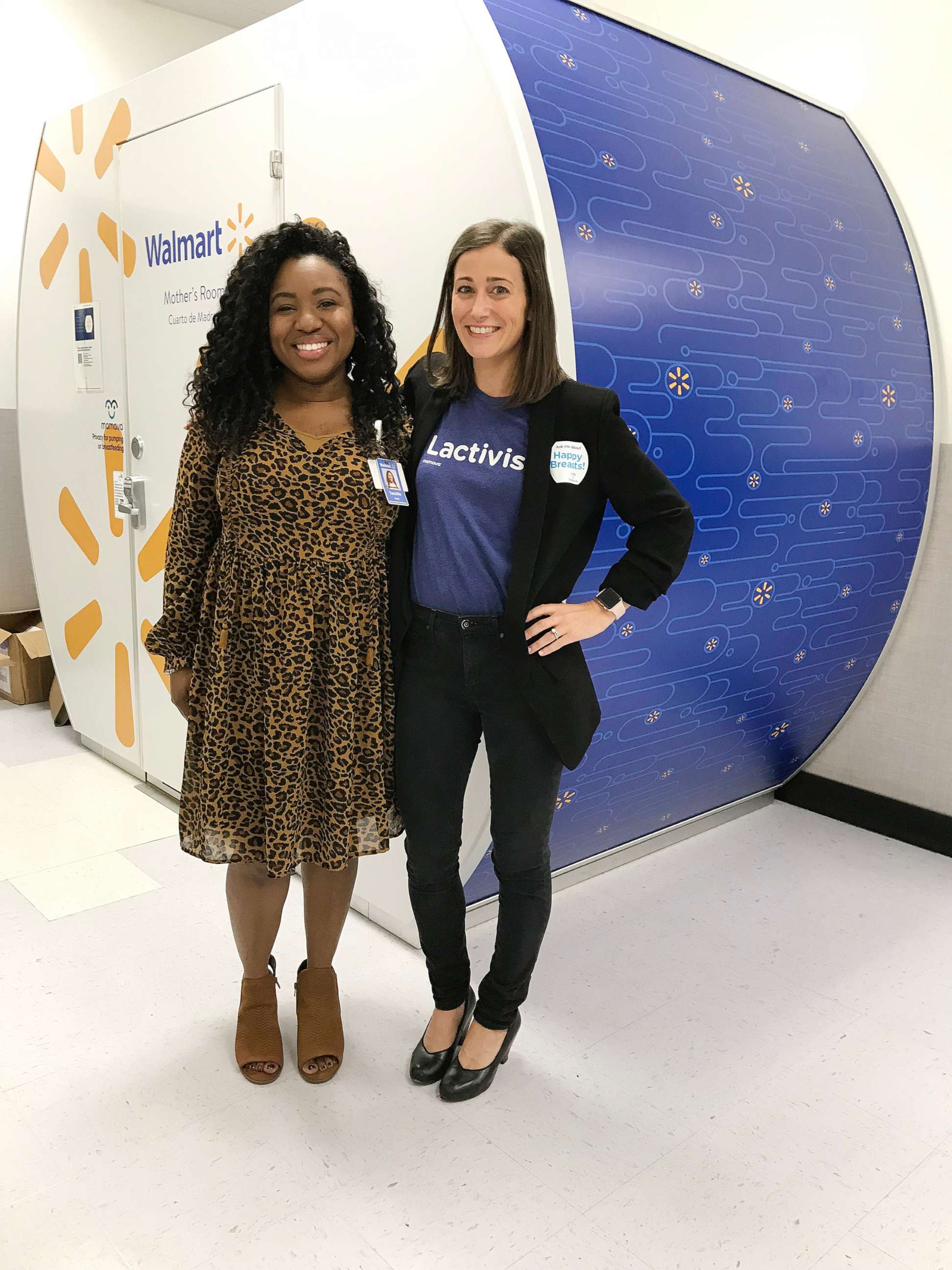
Mamava pods will be added to Walmart stores in the coming years as the stores undergo their scheduled renovations.
People can find out whether their local Walmart store has a breastfeeding pod via the Mamava app.
"Over the past five years we have placed our pods in airports, stadiums, convention centers, and a myriad of workplaces," Mamava CEO Sascha Mayer said in a statement. "The Walmart placements are our most public and impactful as they are going to be accessible to many more moms. Our hope is that this sort of infrastructure in store communicates support for the important work of breastfeeding and pumping, and more parents decide to breastfeed because of it."
